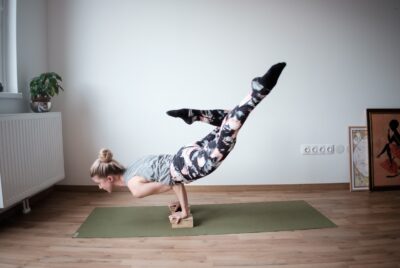Unlocking the Secrets of Your Pelvic Floor: A Beginner’s Guide
Your Pelvic Floor is a crucial component of your anatomy consisting of muscles that form into a sling like structure at the bottom part of our pelvis. These muscles play critical roles in regulating various bodily functions such as bladder control, bowel movements and sexual function among others. In this guide for beginners on unlocking secrets about the pelvic floor we cover everything you need to know regarding strengthening these important muscles while also addressing common disorders along with advanced knowledge needed for optimal health outcomes.
The Importance of Pelvic Floor Health
The pelvic floor consists of several layers of muscle tissue that stretch from the pubic bone to the tailbone. These muscles play a crucial role in supporting organs within the pelvis such as bladder, uterus or prostate gland and rectum. When these muscles become weakened or damaged it can result in various issues like urinary incontinence fecal incontinence pelvic organ prolapse along with chronic pain. By understanding how to take care of it properly through strengthening exercises you can prevent many problems while improving overall wellbeing significantly.
Strengthening Your PF – Important Tips
A healthy pelvic floor is crucial for overall wellbeing and can be maintained through regular exercise targeted at these specific muscles. Kegels or pelvic floor contractions are one of the most effective ways to achieve this goal by contracting the pelvic floor as if stopping midstream urination flow while holding it briefly before releasing. Repeat multiple times daily for optimal results in toning up and strengthening your pelvic area. Additionally, maintain good posture during everyday activities like sitting or standing; avoid heavy lifting when experiencing bowel movements; stay hydrated throughout each day which helps promote better bladder control. By following these simple steps regularly you’ll have a stronger more resilient pelvic floor that supports both physical and emotional health alike!
Improving Bladder Control with Exercises
In addition to Kegel exercises there are several hacks that can aid in improving bladder control while also strengthening your pelvic floor. One such hack is incorporating bladder training techniques into daily routines by gradually increasing the time between trips to bathroom until reaching a comfortable level of control. Another option could be using absorbent pads or underwear for protection against accidents as you work towards building up stronger muscles within this area. By utilizing these strategies alongside other methods like Kegels, individuals may experience improved overall health and wellness outcomes related specifically to their urinary system functioning properly overtime with less risk of leaks or accidents occurring unexpectedly throughout each day’s activities.
Treating Common PF Disorders
If you’re experiencing symptoms related to a pelvic floor disorder such as urinary incontinence or prolapse of the organs within this area, there are various treatment options available. Depending on how severe your condition is, medication may be prescribed along with physical therapy sessions focused specifically on strengthening and restoring proper functioning capabilities for these muscles that play an essential role in our overall wellbeing. The benefits derived from undergoing specialized pelvic floor exercises cannot go unnoticed; they offer immense relief by addressing underlying issues while promoting better health outcomes over time!
Advanced Techniques and Tricks
As you delve deeper into understanding the significance of the pelvic floor for overall health, there are numerous additional techniques and tricks that await discovery. Did you know certain yoga poses can help fortify this vital muscle group? Or did it surprise you to learn how reducing stress levels could positively impact bladder control? With consistent effort and dedication towards improving knowledge about these areas comes new insights and strategies geared toward achieving greater wellness through optimal pelvic floor care.




